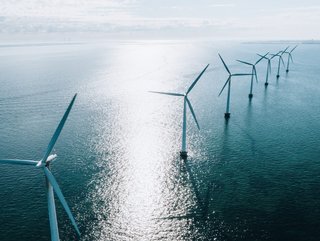SAP: Scope 3 - The biggest challenge to achieving net zero

When it comes to the reduction of carbon emissions, data is a critical driving force. Those in procurement and supply chain stand to benefit from the establishment of a data ecosystem that creates end-to-end transparency of emissions information from business partners.
Scope 3 - The biggest challenge to overcome to achieve net zero targets
While many organisations continue to tackle the fallout of the large-scale disruption from the last two years, it is important to remember the critical importance of climate change and its need for joint effort.
If organisations are to achieve the Paris Agreement targets of a 55% reduction in greenhouse gas emissions by 2030 and the European Union (EU)’s targets of reaching climate neutrality by 2050, “net zero CO2 emissions need to be secured globally around mid-century,” stated SAP.
The company added: This means, in short term, that GHG emissions need to be reduced by more than 50% by 2030 in order to set a responsible pathway to meet the net zero target.”
While many large organisations have incorporated sustainability and/or carbon neutrality in their strategic goals, few can report a clear and comprehensive action plan for such transitions.
What makes reporting on carbon emissions challenging?
While many organisations can successfully report on their Scope 1 and 2 emissions, Scope 3 poses challenges for many despite it constituting a significant share of the overall emissions.
According to McKinsey, two-thirds of ESG footprint lies with suppliers. Despite this, 70% of organisations do not understand where their Scope 3 emissions come from.
“In the automotive industry for instance, 98% of total GHG emissions are Scope 3 emissions. That is why it is even more crucial to identify carbon footprint reduction opportunities along the supply chain,” commented SAP.
Specifically, in the automotive industry, organisations will need to improve their lack of trust, lack of access to high-quality data, inconsistent methodology, and lack of interoperable technology solutions in order to be successful.
Collaboration = Decarbonisaton
In order to meet the growing sustainability and regulatory requirements, collaboration will be crucial with both partners, suppliers, and customers.
In doing so, organisations will be able to establish more transparent processes and common data standards across the value chain.
Developing the first open and collaborative data ecosystem, SAP can help organisations create a more sustainable value chain by incorporating all participants involved and enabling data transparency.
Through Catena-X procurement and supply chains can track a product’s carbon footprint in order to better understand Scope 3 GHG emissions and set the foundations for the enforcement of decarbonisation opportunities.
Catena-X also incorporates the framework of CO2 calculation scheme and data model by partnering with the World Business Council for Sustainable Development (WBCSD). This standardised approach encourages network partners to move away from unspecific industry average measurements, instead use accurate primary emission data.
In addition to Catena-X, SAP also offers GreenToken, which allows organisations to share their product carbon footprint with business partners easily, efficiently, and securely.
Being a web-based, subscription SaaS solution, GreenToken creates accountability and transparency for the materials supply chain. It is also compliant with the WBCSD standardised data model to ensure data consistency across the network.
Leveraging an energy-efficient blockchain, GreenToken notarizes and transfers carbon emissions via tokens from one member’s wallet to another without disclosing private or confidential data. The solution also provides access to secure, open API and can drive transactions manually or by importing CSV files.
“GreenToken’s novel approach has the potential to create an accountable and auditable network to scope 3 reporting that is lacking today. What is more, we have already proved GreenToken at scale in other supply chains, and the solution is now ready for Catena-X,” said James Veale, co-founder of GreenToken by SAP.






